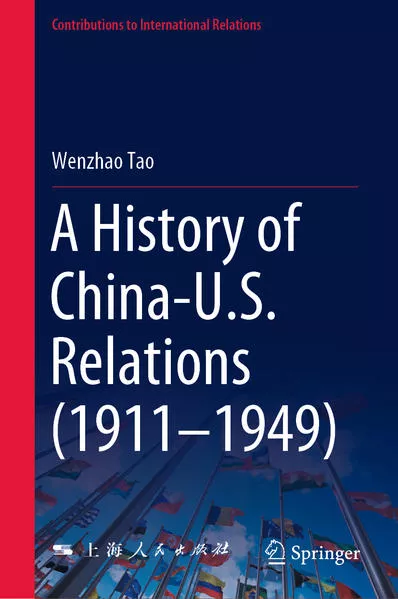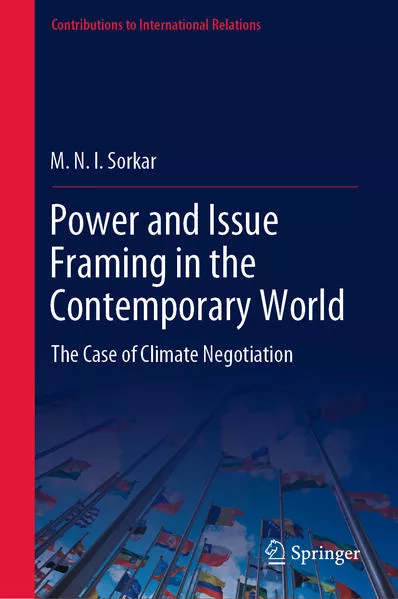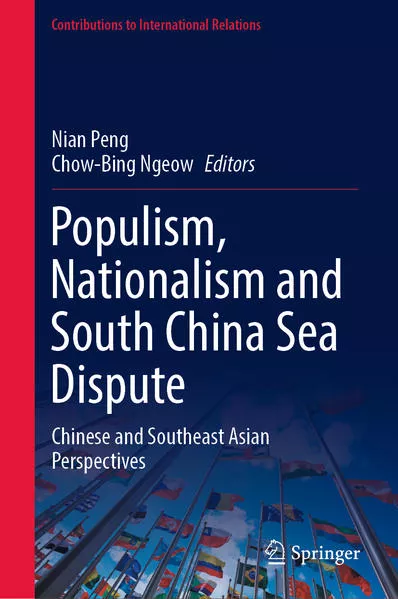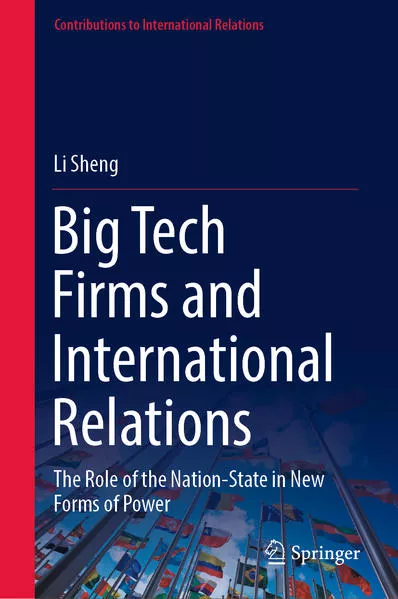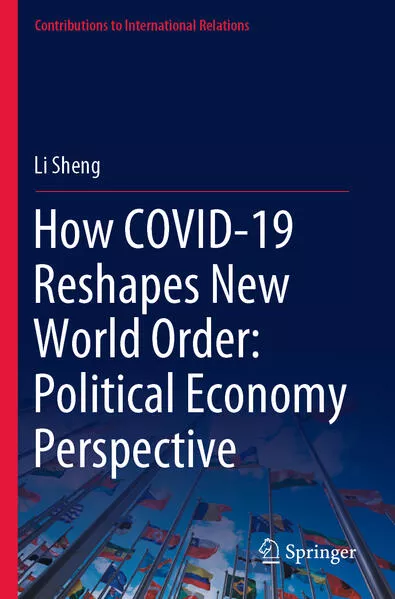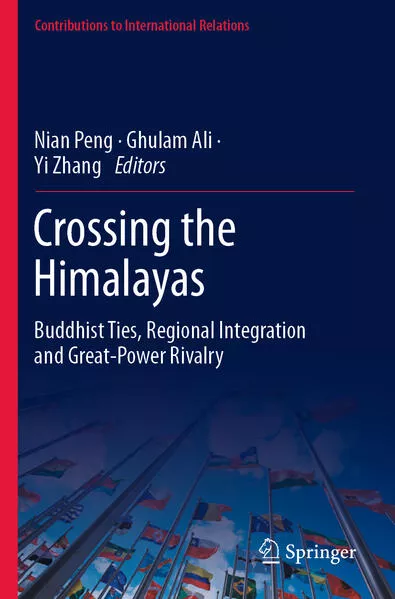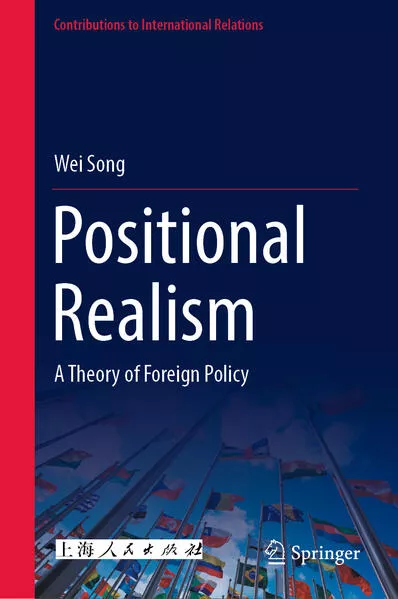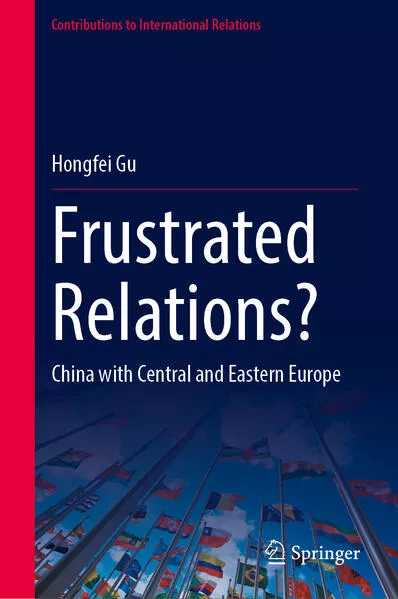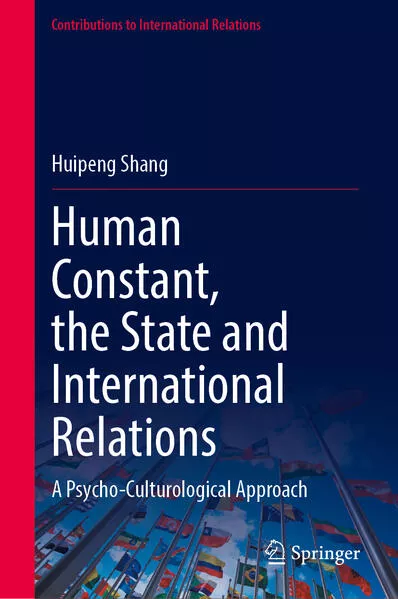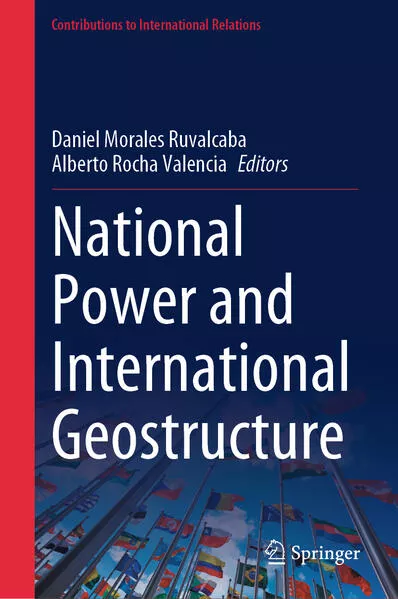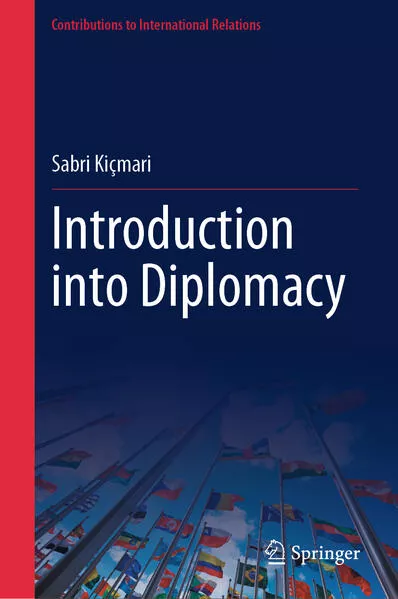Chronologie aller Bände (1 - 11)
Die Reihenfolge beginnt mit dem Buch "A History of China-U.S. Relations (1911–1949)". Wer alle Bücher der Reihe nach lesen möchte, sollte mit diesem Band von Wenzhao Tao beginnen. Der zweite Teil der Reihe "How COVID-19 Reshapes New World Order: Political Economy Perspective" ist am 18.10.2022 erschienen. Mit insgesamt 11 Bänden wurde die Reihe über einen Zeitraum von ungefähr 3 Jahren fortgesetzt. Der neueste Band trägt den Titel "National Power and International Geostructure".
- Anzahl der Bewertungen für die gesamte Reihe: 3
- Ø Bewertung der Reihe: 5
- Start der Reihe: 05.03.2022
- Neueste Folge: 20.04.2025
Diese Reihenfolge enthält 9 unterschiedliche Autoren.
- Autor: Tao, Wenzhao
- Anzahl Bewertungen: 0
- Ø Bewertung:
- Medium: Buch
- Veröffentlicht: 05.03.2022
- Genre: Politik
A History of China-U.S. Relations (1911–1949)
This book contains the history of China-U.S. Relations (1911–1949), including China-US relations in Early Republican Period, the impact of Versailles Peace Conference and Washington Conference on China-US relations, US support for Northern Warlord Government, the Guangzhou Revolutionary Government, and the Nanjing National Government. During the War of Resistance Against Japanese Aggression, the United States went from neutral to form an alliance with China against Japan. After the end of the War, China and the United States gradually moved toward confrontation. This book also has a brief description of China-US relations from 1784 to 1911.
- Autor: Sorkar, M. N. I.
- Anzahl Bewertungen: 1
- Ø Bewertung: 5.0
- Medium: Buch
- Veröffentlicht: 17.03.2022
- Genre: Politik
Power and Issue Framing in the Contemporary World
This book puts forward a new angle of understanding the society of states in the milieu of the contemporary world. The absence of a regulatory mechanism, i.e., anarchy, has been the fundamental issue of international relations. This book explains how the normative imperatives, information and communication technology (ICT) and nuclear deterrence generated ambiance have poised the states in a society where they are bound to follow certain normative imperatives that dilute the color and meaning of anarchy and obliges the states to act in a certain way. It develops a theoretical proposition with regard to state power defined in terms of the capability of determining the outcomes. The proposition first elaborates how international institutions foster normative imperatives; then, in line with this ontology, it narrows down the focus solely on the power of the states in the contemporary world. It explains how the power that can determine the outcome today is holistic in nature, comprisingboth materialistic and normative factors. In the next step, it tailors the proposition in a way so as to employ it for a specific empirical work. The book does not end just positing the theoretical proposition; the proposition is testified through some case studies with regard to climate negotiations under the UNFCCC.
The empirical part not only serves to examine the plausibility of the theoretical proposition, but it also presents the logic of the major actors and the politics with respect to some of the major issues of climate change, i.e., mitigation, funding policy and mechanism and adaptation. The scholars in this arena, climate activists and climate-conscious people in general would find this book worth reading as it kindles a different angle to understand the issues in the context of the contemporary world and as it elaborates the logic, framing process, and mechanism of reaching outcomes through complex negotiation process. No other work has so far analyzed the issuescovering the entire period of 21 apex UNFCCC negotiations that led to the Paris Agreement. Apart from university libraries, this book, thus, has the prospect to be sold in the markets targeting the academicians, climate change experts, bureaucrats, negotiators and the common readers.
- Autor: Peng, Nian
- Anzahl Bewertungen: 0
- Ø Bewertung:
- Medium: Buch
- Veröffentlicht: 08.04.2022
- Genre: Politik
Populism, Nationalism and South China Sea Dispute
- Autor: Sheng, Li
- Anzahl Bewertungen: 0
- Ø Bewertung:
- Medium: Buch
- Veröffentlicht: 07.08.2022
- Genre: Politik
Big Tech Firms and International Relations
This book presents cutting-edge research and exploration of the role of nation-state when big tech firms present themselves as new participants in contemporary international relations that act on an equal footing with nation-states. The general research goal of this book is to identify the justifications that nation-states have adopted to regulate the big tech firms and the impacts of this process on international trade in the main economies in the world.
With the massive instrumentation of data, big tech firms have become actors with the capacity to intervene not only in economies but also, above all, in the politics of different countries with different systems. The emergence of big tech firms has transformed the approach to the concepts of national security, information management and access to new technologies among nation-states. The principles and fundamentals of cyber sovereignty have become one of the bases of states in the contemporary system of international relations. Today, the influence of big tech firms in different societies in the contemporary world is one of the main forms of power. This book tries to collect and present the recent state of the art in studies on the relationship between big tech firms and nation-states in the literature. It also addresses how governments such as those of the US, China and the EU are changing their legislation, creating control and data security mechanisms, imposing entry restrictions on foreign companies, and regulating the actions beyond the cloud of big tech firms inside and outside their borders.
- Autor: Sheng, Li
- Anzahl Bewertungen: 0
- Ø Bewertung:
- Medium: Buch
- Veröffentlicht: 18.10.2022
- Genre: Politik
How COVID-19 Reshapes New World Order: Political Economy Perspective
This timely book explores economic, political, social, and cultural impacts of the COVID-19. It aims to reveal a future world shaped by the worldwide pandemic.
The main content of this book is divided into 5 parts: the pandemic—a short sketch of the pandemic through 2020, the acceleration of the global power transition: from East to West, comparison between authoritarian and democratic in the pandemic era, global international organizations under the COVID-19 influence, and regional international organizations under the COVID-19 influence. In addition, this book also analyzes the impacts from two aspects: the changes of the world order and the repercussions for international organizations and globalization. Three questions will be focused: How the pandemic has changed the existing world order? What the new post-pandemic world order will be? How international cooperation has been affected and will be affected?
This book is a comprehensive study that investigates the impacts of the COVID-19 pandemic and the political implication on international organizations. It would not only inspire readers to think about impacts of the outbreak of COVID-19 from economic and political perspectives, but also encourage readers to have a deeper understanding of the global political pattern and potential changes of world order after the pandemic. Therefore, the intended readership not only includes the academics but also includes pro-academics. The academic audiences include university and college scholars (especially those majoring in history, political sciences, economics, and international relations), teachers, and administrative staff at the undergraduate, graduate, postgraduate, and Ph.D. levels, as well as study centers and research institutes and campus and public libraries. The pro-academic groups include civil servants, especially scholarly bureaucrats and technocrats; white collar and middle-class citizens interested in reading, especially thoseinterested in and concerned about current affairs; and international business elites.
The most important feature of this book is that it points out the COVID-19 pandemic has been shaping the world order. It also shows in the coming post-pandemic world, the United States would maintain the position of superpower while the still rising China is likely to share some responsibilities in constructing a new multi-polar world with US and other powers. The prevailing of unilateralism will heavily constrain the role of international organizations.
- Autor: Peng, Nian
- Anzahl Bewertungen: 0
- Ø Bewertung:
- Medium: Buch
- Veröffentlicht: 29.10.2022
- Genre: Politik
Crossing the Himalayas
This is the first study which brings the Himalaya region at the center of geopolitical and geo-economics cooperation and rivalry thus highlighting its significance in Asian politics. It offers a comprehensive analysis of the complicated geo-political and geo-economic competition in the Himalayan region by inviting experts from both South Asia and China to contribute chapters. It also balances the west-centered views on the great power rivalry by introducing cultural perspective and small state perspective.
The broad approach adopted in the book with focus on all important countries expands the scope of readership beyond specific academic community. The book will interest academics, policy makers, journalists, general reader and students of Asian politics.
- Autor: Song, Wei
- Anzahl Bewertungen: 0
- Ø Bewertung:
- Medium: Buch
- Veröffentlicht: 01.12.2022
- Genre: Politik
Positional Realism
This book adopts the rationalist research path to bring forward an innovative theory of foreign policy, and the central question is: How can we define the overall national interests of great powers appropriately and thus help states make consistent and rational grand strategies? The answer can't be found among existing Foreign Policy Analysis and other theoretical research. In this book, Positional Realism is proposed as a new theory to define the overall national interests from the power position and order position perspectives and specify the four kinds of positional interests of hegemonic states, contending states, potential contending states, and non-contending states. Different great powers have different positional power and order objectives. Based on these positional interests, Positional Realism brings different foreign policy hypotheses and suggestions. The book also examines the six great powers in the nineteenth century to verify these hypotheses and finds that PositionalRealism can not only convincingly explain the success or failure of their acts, but also give useful and important directions for strategy making of great powers.
- Autor: Gu, Hongfei
- Anzahl Bewertungen: 0
- Ø Bewertung:
- Medium: Buch
- Veröffentlicht: 28.08.2023
- Genre: Politik
Frustrated Relations?
After the end of the Cold War and the sudden and shocking collapse of the Soviet Union, the geopolitics of Central and Eastern Europe begins to undergo dramatic changes. Since then, an increase in public discussion in China about the transformation from the planned economy to market economy became very visible. Moreover, this part of the world perceives as the gate to Europe through almost forget Silk Road. Both factors have played a crucial role in shaping China’s interest in the region of Central and Eastern Europe. Following the points mentioned above, China’s interests in Central and Eastern Europe are due to several factors, including its frontier stability, national security, economic expansion, and search for new sources of energy and new markets for made in China products. Recognition of the importance of the region culminates in the recent Chinese grand strategy of “Belt and Road,” which highlights Central and Eastern Europe as the essential link in China’s plan New Silk Road strategy. In this regard, the “China-CEEC” Cooperation Mechanism has a crucial role in China’s “Go West” strategy.
- Autor: Shang, Huipeng
- Anzahl Bewertungen: 0
- Ø Bewertung:
- Medium: Buch
- Veröffentlicht: 17.11.2023
- Genre: Politik
People (Jen), State and Inter-state Relations
This book explores the relationship between the “human constant” (Jen) of the four large-scale civilizational societies—China, the USA, Japan, and India—and their international behavior, response patterns, and interaction with the international system. The book analyzes the characteristics and limitations of the current international system, as well as the way it is related to the Western type of “human constant”. It also analyzes the challenges facing China in its integration into the international system. This book aims to explore international relations from the combined psychological and cultural perspective. The key concept of this book is “Jen”, which contains a distinct Chinese cultural experience, into the theory of international relations. Unlike other IR books to treat state as the main political actor, the book analyzes both the political aspects of state as an “organizational entity” and its civilizational aspects as a “civilizational entity”; hence, it proposes a new ontology of international relations. By integrating the concept of “Jen” based on the unique Chinese cultural experience into the theory of international relations, the book reveals the interactive nature of relationship between the international system and “human constant”. The book explains the causal relationship between state’s behavior and its “human constant”, analyzes the cultural characteristics of state actors and the international system, and tries to provide a new theoretical framework for understanding culture and modernity.
- Autor: Morales Ruvalcaba, Daniel
- Anzahl Bewertungen: 0
- Ø Bewertung:
- Medium: Buch
- Veröffentlicht: 20.05.2024
- Genre: Politik
National Power and International Geostructure
This book addresses three innovative aspects for the study of International Relations: first, proposes a novel theoretical-methodological framework for the study of national power, and based on this, a quantitative analysis technique is formulated that allows us to study the evolution of state power over almost five decades. Second, states play a fundamental role in the international system, which is why the study of their roles in the world cannot be limited to old, insufficient, and contradictory categorizations.
Having new categories of states becomes an even more urgent task in the rapidly changing international order than it is today. This book proposes nine categories of powers and states that cover all the countries that currently exist. Third, the international geostructure of world power is proposed, which represents a new theoretical notion that helps to explain how the international insertion of states and their possibilities of action are conditioned by the unequal distribution of national power and by their structural positioning in the international system.
This book is for all students of International Relations, academics, and people who want to understand national power as a fundamental factor in relations between countries.
- Autor: Kiçmari, Sabri
- Anzahl Bewertungen: 0
- Ø Bewertung:
- Medium: Buch
- Veröffentlicht: 20.07.2024
- Genre: Politik
Introduction into Diplomacy
The textbook is a rarity as it explores the functions of diplomacy from a practical perspective on diplomatic activity. This in-depth study redefines diplomacy, distinguishing it from conventional definitions. While the historical context of diplomacy is briefly discussed, the spotlight then turns to six diplomatic classics: Niccolo Machiavelli, Hugo Grotius, Ernest Satow, Harold Nicolson, Henry Kissinger, and Geoff R. Berridge. Thus, their brief biographies and core diplomatic tenets are revealed. Many aspects of the theories of international relations are covered, including liberalism, realism, neoliberal institutionalism, and constructivism.
Diplomatic protocol is analysed as an instrument, guiding the position of political and diplomatic representatives according to the ranking system. Practical examples abound, with illustrations of protocol rules from the United States, the United Kingdom, Japan, Australia, France, Germany, China, and Kosovo. The pivotal role of language in diplomacy is discovered as a communication tool, alongside an examination of its specific significance. It also delves into public diplomacy, exploring its evolution over the three two decades, heavily influenced by media developments. The book also focuses on the establishment of sociology of diplomacy as a new independent discipline. It sheds light on the necessary scientific research procedures, both theoretical and empirical, grounded in descriptive methodologies, understanding, and sociological explanations of the diplomatic phenomena. A crucial part of the book examines the connection between diplomacy and ethics and asserts that while states naturally pursue their interests, adherence to ethical principles must remain steadfast. Finally, gain insights into the traits and characteristics of a modern diplomat as the book draws to a close.
